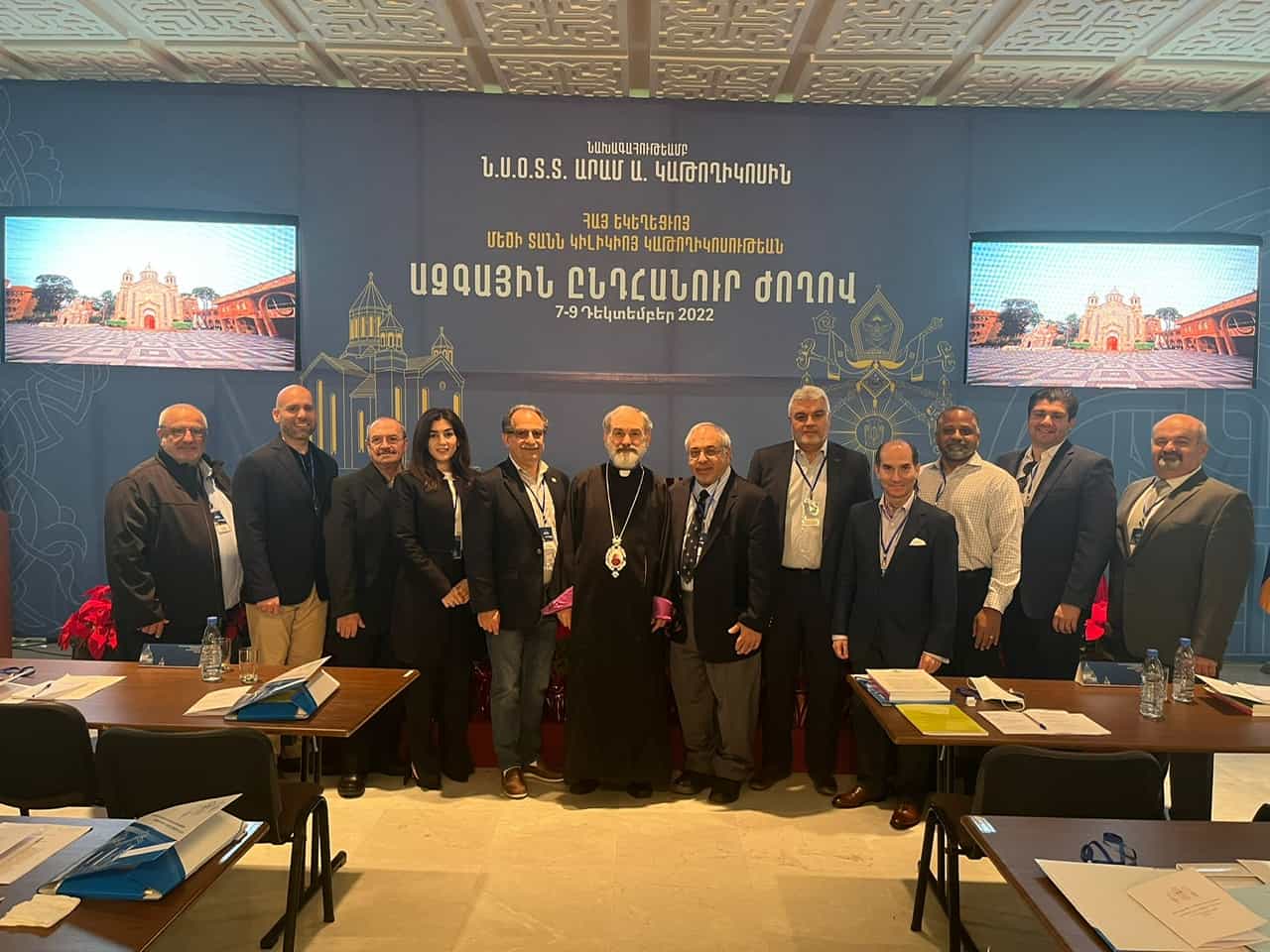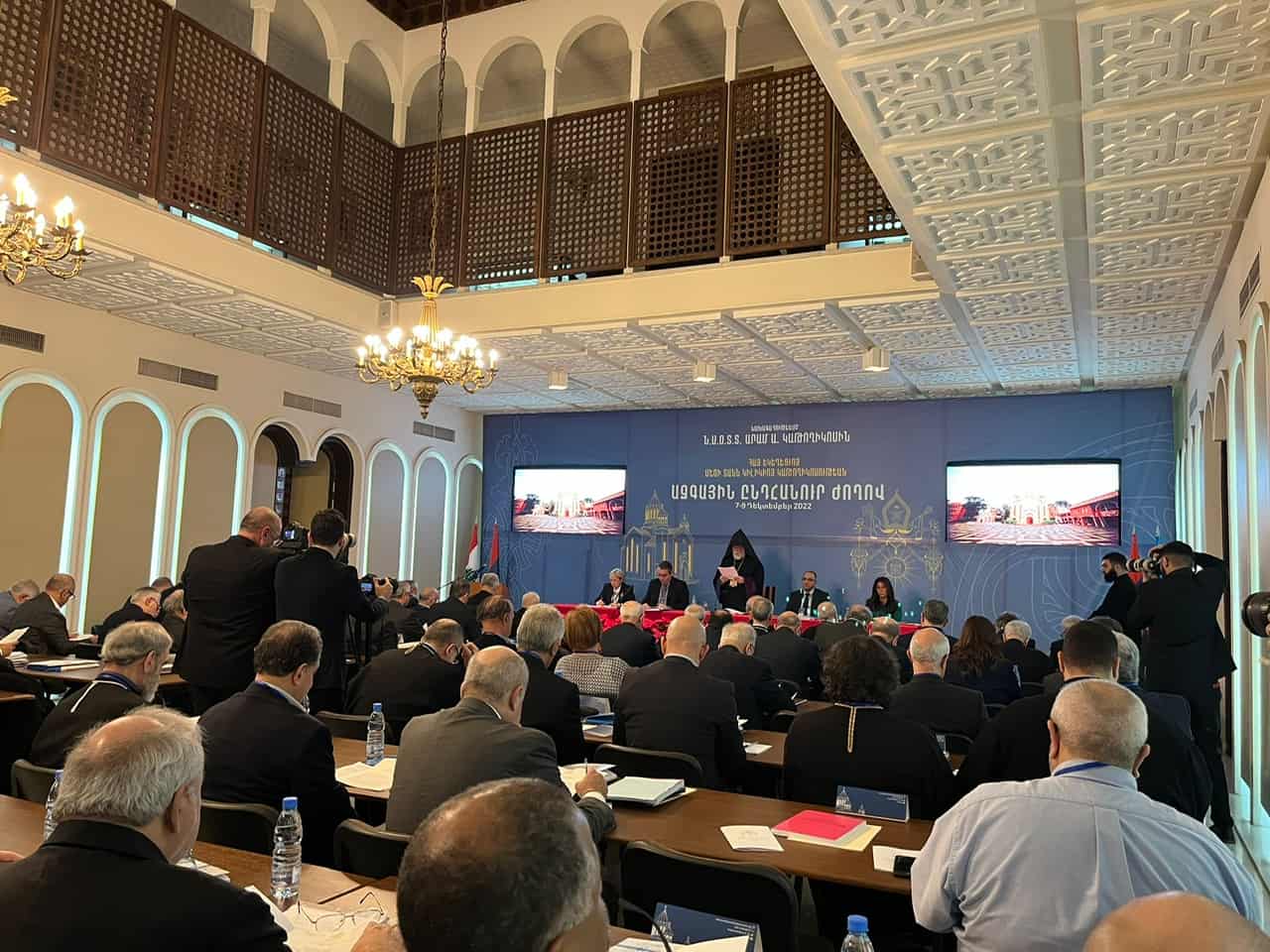
The General Assembly of the Catholicosate of the Great House of Cilicia convened on Wednesday, Dec. 7, at the monastery of Antelias, Lebanon. His Holiness Catholicos Aram I presides the meeting, which runs through Friday, Dec. 9.
The assembly is held every four years. Prelates and about 125 delegates from the different Prelacies under the jurisdiction of the Catholicosate are participating.
His Eminence Archbishop Anoushavan, Prelate, and the following delegates of the Eastern Prelacy are participating in the General Assembly: Hovsep Avakian; Ara Barsoumian; Dr. Carlo Bayrakdarian; Veh Bezdikian; Michael Gostanian; Aram Hovagimian; Tamar Kanarian; Hagop Khatchadourian; Armen Morian, Esq.; Richard Sarajian, Esq., and Zarmair Setrakian.
The Catholicos welcomed the participants and proposed the delegates elect the provisional Tivan from among the youngest and oldest participants. Afterwards, the election for the permanent Tivan was held. Vatche Najarian, from the Lebanon Prelacy, and Ara Shavertian, from the Tehran Prelacy, were elected co-chairs of the Assembly. Houri Azezian, from the Aleppo Prelacy, and Elizabeth Boyajian, from the Western Prelacy of the United States, were elected recording secretaries.
Following the election of subcommittees, His Holiness addressed the participants. He said that the last five years have been turbulent, with major crises including the Artsakh war of Sept. 2020, the blast at the port of Beirut in August that year and the acute social and economic crisis in Lebanon. Yet the Great House of Cilicia continued its mission with indefatigable resolve.
The priorities for the future work must include: renewal of the Armenian Church; training of clergy and staff; reaffirmation of moral and spiritual values; reorganization of the Diaspora; support for the Lebanon and Syria communities, and an active role in the development of Armenia and Artsakh.
In the sessions that ensued, the Religious and Lay Councils of the Central Executive Council of the Catholicosate presented their reports. His Holiness and the Religious and Lay Councils offered insights and clarifications in response to questions from the delegates.

